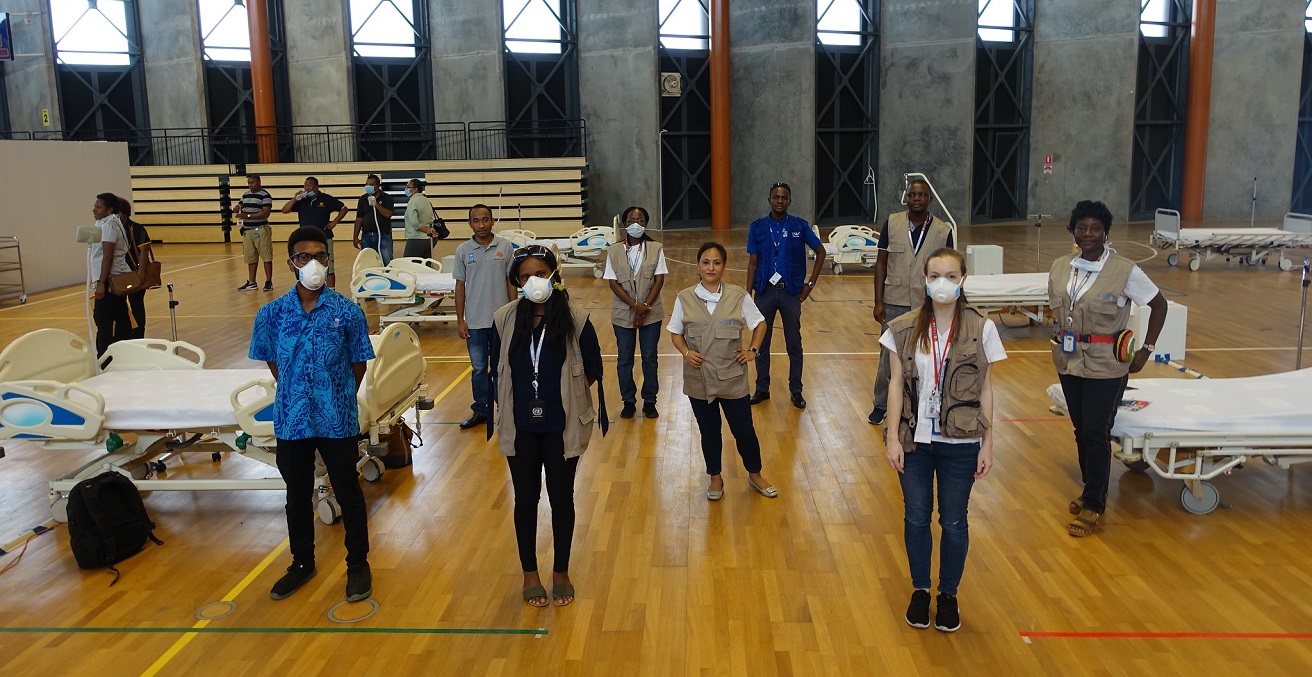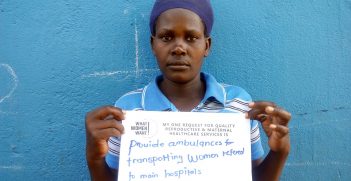What Can COVID-19 Tell Us About Pacific Resilience?

Australia’s generosity in responding to the immediate COVID-19 crisis in the Pacific has been welcomed by the region. This should not obscure how the behaviour of Australia and other regional partners has contributed to the developmental and security challenges facing the region.
Geographic isolation and border controls have meant that the Pacific has avoided many of the direct consequences of the COVID-19 pandemic. Pacific states were amongst the first to close businesses and impose travel restrictions, social distancing measures, mask-wearing, and quarantine. While governance mechanisms have generated some challenges, the spread of COVID-19 has been limited, with Pacific states among the few globally to have either avoided or eliminated the virus.
However, the indirect consequences of COVID-19 have been devastating. The pandemic has exacerbated existing and interrelated developmental and security challenges such as urbanisation, food insecurity, and domestic violence, in addition to the risk of inflaming existing tensions at mine sites in Papua New Guinea (PNG). In their attempts to combat negative economic impacts, some states have moved too quickly to re-open their economies to tourism, with serious health consequences.
Of the region’s partners, Australia has mounted the most significant financial response to COVID-19. It has adapted its aid program to respond to the need for immediate relief from the health, social, and economic consequences, including the provision of humanitarian supplies, medical equipment, PPE, and testing kits. It provided $100 million of immediate crisis funding to help governments maintain public services, and then created a $304.7 million COVID-19 Response Package as part of its Pacific Step-up to address the developmental challenges exacerbated by the pandemic. Australia has also committed to delivering COVID-19 vaccines to its Pacific partners.
Australia’s response has occurred within its Pacific Partnerships for Recovery framework. That framework articulates Australia’s vision for “a stable, prosperous, resilient Indo-Pacific in the wake of COVID-19.” As with Australia’s approach to climate change in the region, this framework emphasises the importance of enhancing the “resilience” of Pacific states.
The concept of resilience is appealing in the Pacific context because it provides space to recognise the complexity that characterises the region. Many of the contemporary challenges facing the Pacific have their antecedents in the past, particularly in histories of colonisation and intervention, and will be experienced in the future, particularly climate change.
Intersecting crises have meant that under-resourced states have had to divert essential resourcing from other serious security concerns to manage the pandemic. For example, while closed borders should reduce transnational crime, the discovery of a crashed plane in PNG with more than 500kg of cocaine on board indicates illicit drug flows have not stopped. Also, border and quarantine processes limited the immediacy of humanitarian aid following Cyclone Harold, which hit Tonga, Fiji, Vanuatu, and the Solomon Islands in April 2020.
Resilience is not a new concept in the region, where people have long responded and adapted to environmental, societal, and geopolitical shocks. Regionally, the Pacific Islands Forum (PIF) has responded to the climate challenge with a high level of regional solidarity and entrepreneurial activism. Similarly, PIF leaders created a Pacific Humanitarian Pathway on COVID-19 (PHP-C) to enable logistics and assistance, avoid duplication, and maintain the supply of critical goods and people. The action-orientated PHP-C shows how the transformed and resilient Pacific regional architecture operates through leadership by Pacific states.
Resilience emphasises the agency of impacted states and peoples. It therefore provides a welcome counterpoint to the concepts of vulnerability, fragility, or weakness, which imply helplessness and have traditionally dominated donor discourses about the Pacific. By emphasising agency, resilience enables the local practices and institutions that are often the most effective ways in which Pacific peoples manage their everyday lives and respond to shocks. While Pacific state institutions often lack capacity, local communities play an important role in delivering public goods and services and maintaining social cohesion. Many Pacific people have been able to fall back on their extended family networks and subsistence lifestyles as the pandemic hit.
But the concept of resilience carries some risks. By emphasising the agency of those affected, it obscures structural factors that cause shocks and render impacted people vulnerable. Resilience can gloss over the fact that the consequences of COVID-19 in the Pacific are largely symptomatic of larger structural inequalities, rendering shocks such as pandemics something that states have to cope with, rather than addressing structural factors. By implying that impacted populations must adapt to and cope with shocks, resilience can imply that there is less need for prevention.
This is a common critique of the Australian government’s emphasis on climate change resilience or adaptation in the Pacific rather than mitigation. This reveals the power relationships often involved in framing the discourse about shocks and stresses, with Australia seeking to emphasise climate resilience and adaptation to reflect domestic political interests in fossil fuel extraction and use. By emphasising resilience, donors imply that Pacific states and peoples need to develop resilience to adapt to shocks not of their own making. Therefore, the burden of responding to the shocks can be shifted to Pacific states and peoples, rather than to the larger states and actors who have caused or contributed to shocks.
Overall, while the impact of the pandemic has been significant in the Pacific, the cautious, cooperative, and community-oriented way most Pacific states and people have responded has avoided worst-case scenarios of high number of infections, overwhelmed health systems, and thousands of deaths. As with the Pacific’s global leadership in action on climate change, the region’s initial response to the COVID-19 pandemic offers lessons for the rest of the world. And, as with climate change, the devastating indirect consequences of the pandemic highlight that the Pacific cannot remain insulated from a crisis not of its own making.
This has implications for Australia’s response to COVID-19 in the Pacific. Australia’s generosity in responding to the immediate crisis is welcome, as is its broader “Step-up” in the region. And Australia is right to recognise and seek to enhance Pacific resilience and the agency of Pacific people to respond to crises. But, this is not an excuse for Australia and other regional partners to avoid taking long-term action to address how their behaviour (both past and present) has contributed to many of the developmental and security challenges that face the region.
Joanne Wallis is Professor of International Security in the Department of Politics and International Relations at the University of Adelaide. Her research focuses on security, peacebuilding, and Australia’s strategy in the Pacific.
Henrietta McNeill is a PhD scholar in the Department of Pacific Affairs at the Australian National University. Her research focuses on Pacific security, transnational crime, and migration.





